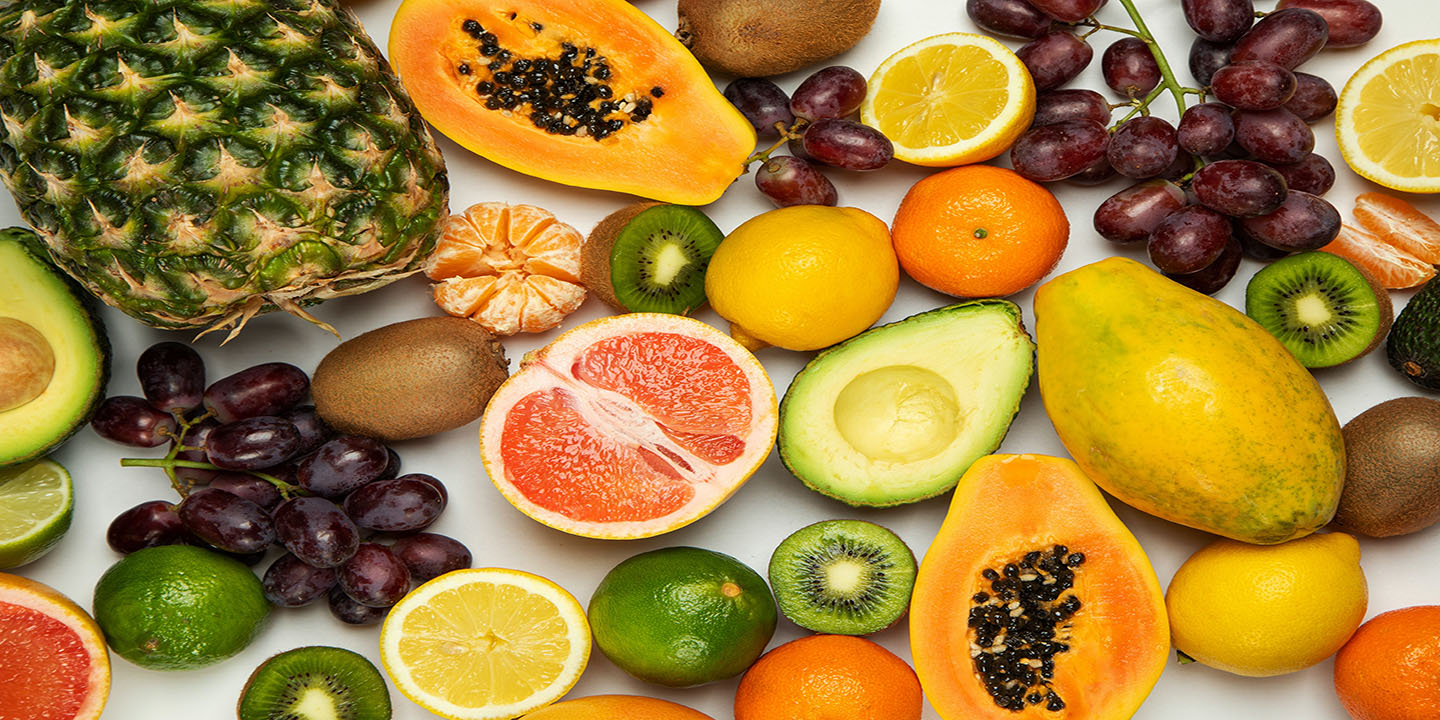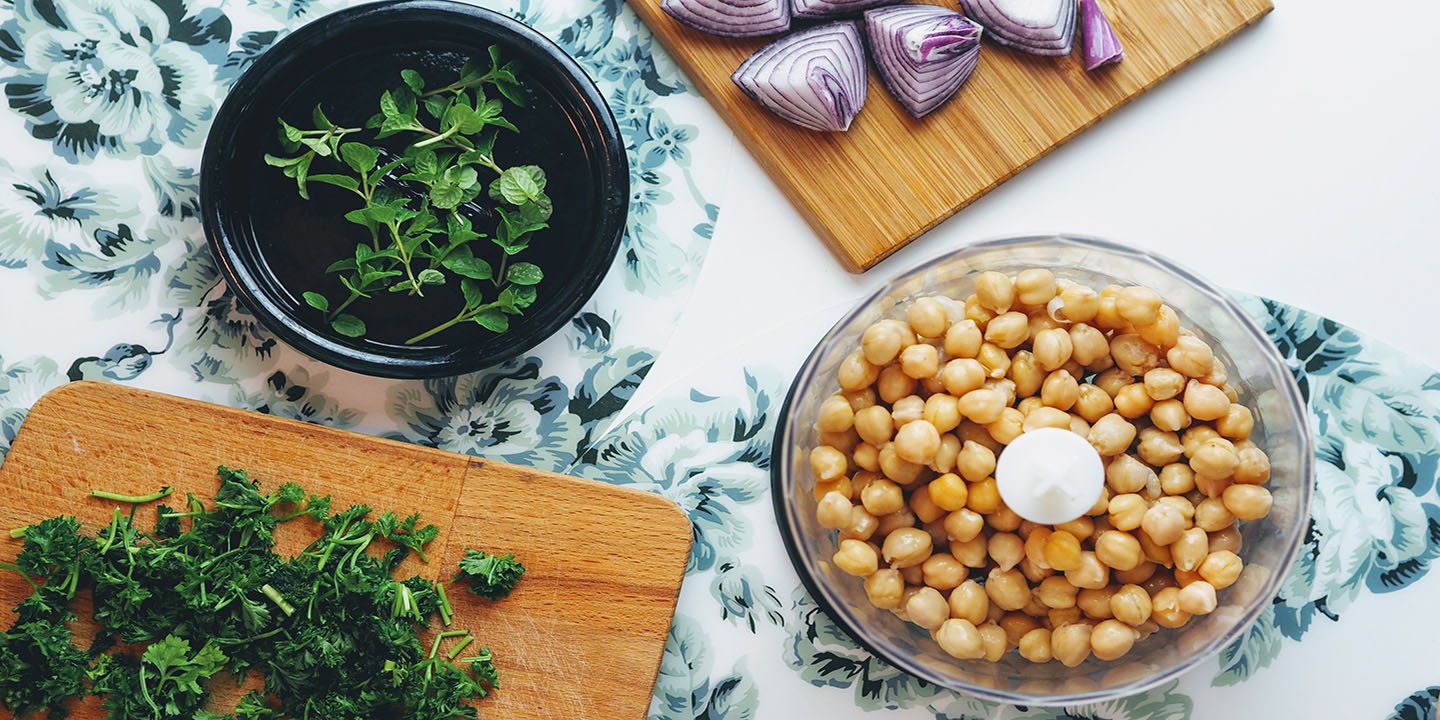20 Dietitian-Approved Healthy Eating Tips You Should Start Following
Smart Choices Backed by Experts
Eating healthy doesn’t have to feel impossible. You don’t need to ransack your fridge or start eating only salad every day. In fact, it’s easier than you think to make healthier choices—and we’ve got some simple ways to help you get started. Here are 20 dietitian-approved healthy eating tips you should start following.
1. Protein for Breakfast
You likely know that protein is essential for building and repairing muscle, and helps keep you fuller for longer. Instead of only incorporating it into lunch and dinner, ensure that your breakfast includes a protein-rich meal as well. This kickstarts your morning and gives you the energy you need to tackle the day ahead.
 Jhunelle Francis Sardido on Unsplash
Jhunelle Francis Sardido on Unsplash
2. Drink Water Before Each Meal
Drinking a large glass of water before each meal not only helps keep you hydrated but may also prevent you from overeating. This is because the liquid will fill up your stomach and cause feelings of fullness even before you start eating, which may be helpful for those trying to lose weight.
3. Eat Slowly
If you eat too quickly, you might end up overeating. This is because it takes around 20 minutes for your stomach to register that it's full and send that signal back to the brain. Eating more slowly gives your body enough time to enjoy your meal and to stop before you're overstuffed.
 Pablo Merchán Montes on Unsplash
Pablo Merchán Montes on Unsplash
4. Add Fermented Foods to Your Diet
Many fermented foods contain probiotics, or beneficial bacteria that help diversify your gut microbiome and keep your body healthy. It can even aid in fighting off infection and preventing inflammation. Yogurt, kimchi, kombucha, sauerkraut, and miso are just some examples of fermented dishes.
 Portuguese Gravity on Unsplash
Portuguese Gravity on Unsplash
5. Use Smaller Bowls & Plates
Instead of using massive plates and bowls for each meal, use smaller dishes. This easy trick ensures better portion control, and bluffs your brain into thinking you're eating more than you actually are. You'll not only eat less but also feel full with less, which is great if you're trying to lose weight.
6. Snack on Fruit
Feeling peckish? Don't reach for chips and sweets—go for fruit instead. And yes, we mean real, whole fruit, not packaged juice boxes or flavored gummies. Fruits are loaded with essential vitamins, minerals, and fiber, which help your digestive tract move smoothly, boost immunity, and lower the risk of chronic diseases.
7. Drink Green Tea
If you don't already, you might want to start drinking green tea every day. Research suggests that drinking 3-5 cups daily may boost heart health and lower LDL (bad) cholesterol levels. This is because green tea is packed with plant-based compounds that have antioxidant and anti-inflammatory properties.
8. Keep a Food Diary
Keeping a food diary is far more helpful than you think. For one, it boosts self-awareness, allowing you to see your eating patterns, portion sizes, and dietary habits. This makes it easier to pinpoint areas where you might need to improve so that you can set better, healthier goals.
9. Meal Prep for the Week Ahead
Meal prepping is an easy way to save time and stick to your weight loss goals. You won't need to stress over what to make for lunch or dinner, and if you portion everything correctly and make the right nutritious choices, you'll stay on top of your game.
10. Limit Sugar Intake
You've heard this advice before, but you likely don't follow it the best you can. But eating too much sugar can greatly increase your risk of heart disease, type 2 diabetes, and obesity. If you're looking for a place to start, cut out the sweetened beverages, which often contain a whopping amount of sugar.
11. Eat More Fiber
You likely don't eat enough fiber than is recommended; in fact, on average, Americans only get about 15 grams of fiber each day, which is only about half the suggested amount of about 25-40 grams. To make sure you're getting enough, incorporate it into every meal, such as eating more whole grains or adding chia seeds to your yogurt or oatmeal.
12. Reduce Salt Intake
Americans don't get enough fiber, but they do consume too much sodium—a whopping 3,400 milligrams a day, which is 1,100 milligrams more than the daily limit of 2,300. Over time, this high salt intake may lead to health complications like high blood pressure, so it's important to be mindful of how much you're eating.
 Esperanza Doronila on Unsplash
Esperanza Doronila on Unsplash
13. Add Ground Flaxseed to Your Diet
Ground flaxseed offers ample benefits, from lowering LDL (bad) cholesterol to possibly protecting against certain forms of cancer, like breast and prostate. It's easy to add to your meals as well, given how finely powdered it is. Just make sure to consume them ground and not whole; the latter will pass through your intestinal tract undigested.
14. Choose Leaner Proteins
Choose leaner proteins to reduce your intake of saturated fat. This might mean opting for less fatty cuts of beef or reaching for plant-based proteins instead, like tofu, tempeh, and lentils. That doesn't mean you need to give up ribeye steak entirely—it just means practicing moderation.
15. Load Up on Orange Vegetables
Orange vegetables, like carrots, sweet potatoes, and squash, contain an antioxidant called beta-carotene, which may help protect the body against cell damage and lower the risk of heart disease and certain cancers. The good news is you can easily get your fill of this potent antioxidant by eating half a cup of carrots or squash, or a medium sweet potato.
16. Eat Dinner Earlier
If you can, set a cut-off time for eating earlier in the day, such as having your dinner before 8PM. You generally want to avoid having a large meal later in the evening (or you risk sleeping bloated), but if you work late, keep it light: a bowl of soup with a side of lean protein and leafy vegetables.
17. Eat More Whole-Grain Foods
Eating foods made with whole grains may lower your risk of heart disease, type 2 diabetes, and certain forms of cancer, such as colorectal cancer. It's recommended to get at least 3-5 servings of whole grains per day to reap all their benefits.
18. Don't Skip Breakfast
If you do intermittent fasting, you might be used to skipping breakfast and starting your meals at lunchtime. But you've heard the saying: Breakfast is the most important meal of the day. And it's true—research has shown that people who skip it tend to eat foods higher in fat, sugar, and calories for lunch, dinner, and snacks in between.
19. Use More Herbs & Spices
An easy way to reduce your sodium intake is to use more herbs and spices in your dishes. Plus, these flavorful seasonings are not only salt-free, but they also contain potent antioxidant and anti-inflammatory compounds that may help guard against chronic diseases, such as type 2 diabetes, heart disease, and cancer.
20. Eat More Fish
It's recommended for American adults to eat at least 8 ounces of fish and seafood a week, but many don't meet this mark. Oily fish, like salmon, offer ample health benefits, such as being an excellent source of omega-2 fatty acids, which can lower your triglyceride levels and boost heart health. An easy way to eat more of it is to swap your regular protein for fish at least twice a week.
KEEP ON READING

The Most Popular Signature Dishes Around the World























